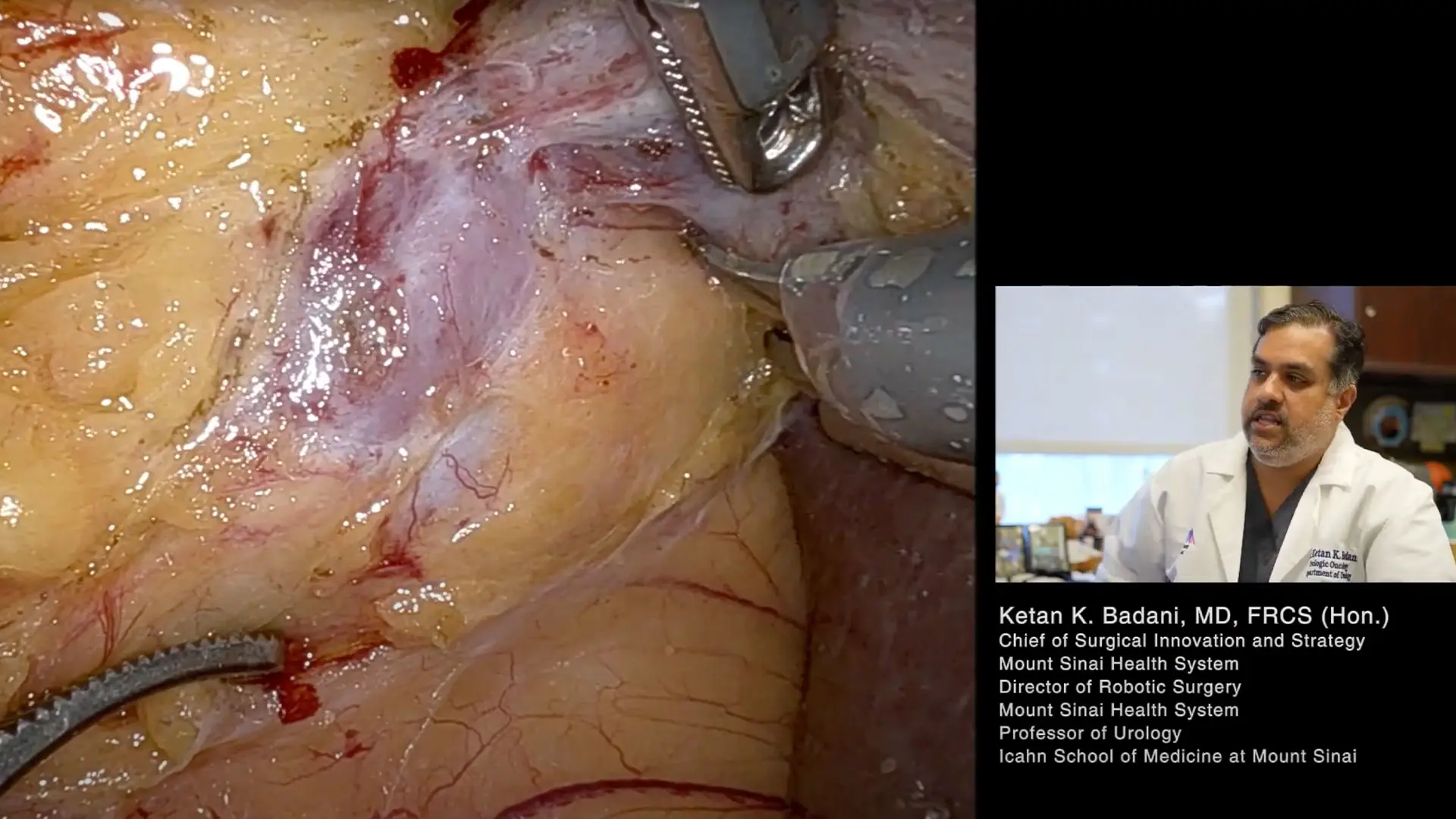
Click here to watch the video.
Ketan Badani, MD, FRCS (Hon.), has performed nearly 3,000 robotic kidney operations, the largest experience in the world, and in the process has standardized his F.A.S.T. (First Assistant Sparing Technique) approach to robotic partial nephrectomy. Whether it is a highly complex procedure or one that is more routine, the surgical steps and principles remain the same.
For all partial nephrectomy cases, doctors and patients expect exceptional outcomes, such as patients remaining in the hospital for less than 23 hours, avoiding complications, preserving normal kidney function, and a transfusion rate of less than 1 percent.
In this video, Dr. Badani, Director of the Kidney Cancer Center at the Mount Sinai Health System, and Professor of Urology at the Icahn School of Medicine at Mount Sinai, demonstrates this standardized approach that has evolved over his large experience. The video shows a highly complex case, as it was a tumor recurrence after a prior surgery and a challenging location of the tumor within the kidney.